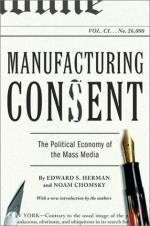|
This section contains 1,146 words (approx. 4 pages at 300 words per page) |

|
In the field of communication and information studies, "political economy" is a term generally used to describe scholarship concerned with the relationships among economic, political, and communications systems within the structure of global capitalism. The tradition is rooted in the classical political economy of Adam Smith, David Ricardo, and John Stuart Mill, among others, and the radical political economy of Karl Marx. Their works, spanning the late eighteenth to late nineteenth centuries, sought to understand the nature of the emerging industrial phase of capitalism. Though the original political economists had relatively little to say about communications systems, they established a holistic and normative approach upon which contemporary political economists of communication and information have built.
Beginning in the late nineteenth century, classical political economy gave way to neoclassical approaches that displaced political and moral considerations from the study of economics for the purposes of establishing a...
|
This section contains 1,146 words (approx. 4 pages at 300 words per page) |

|


